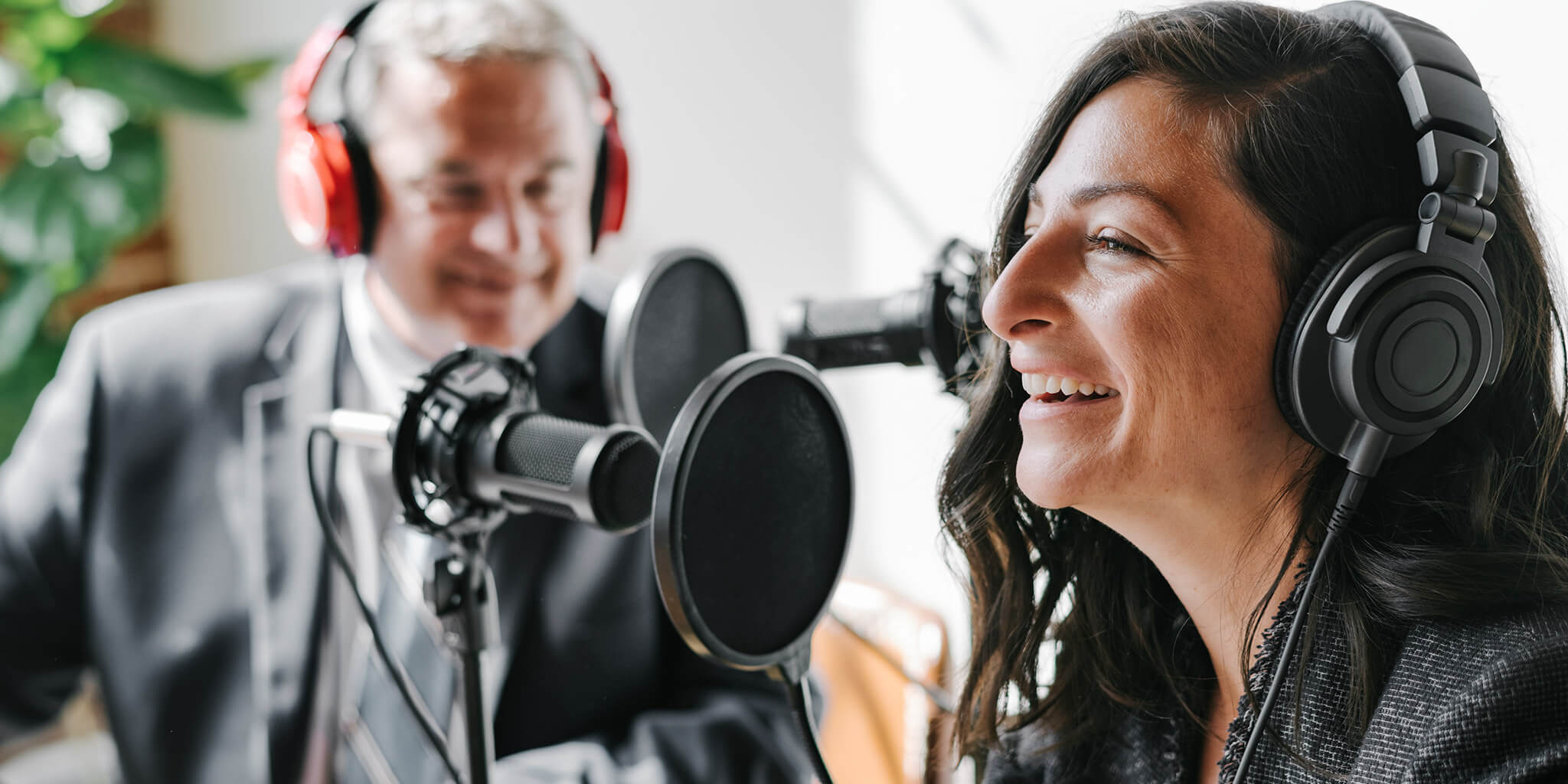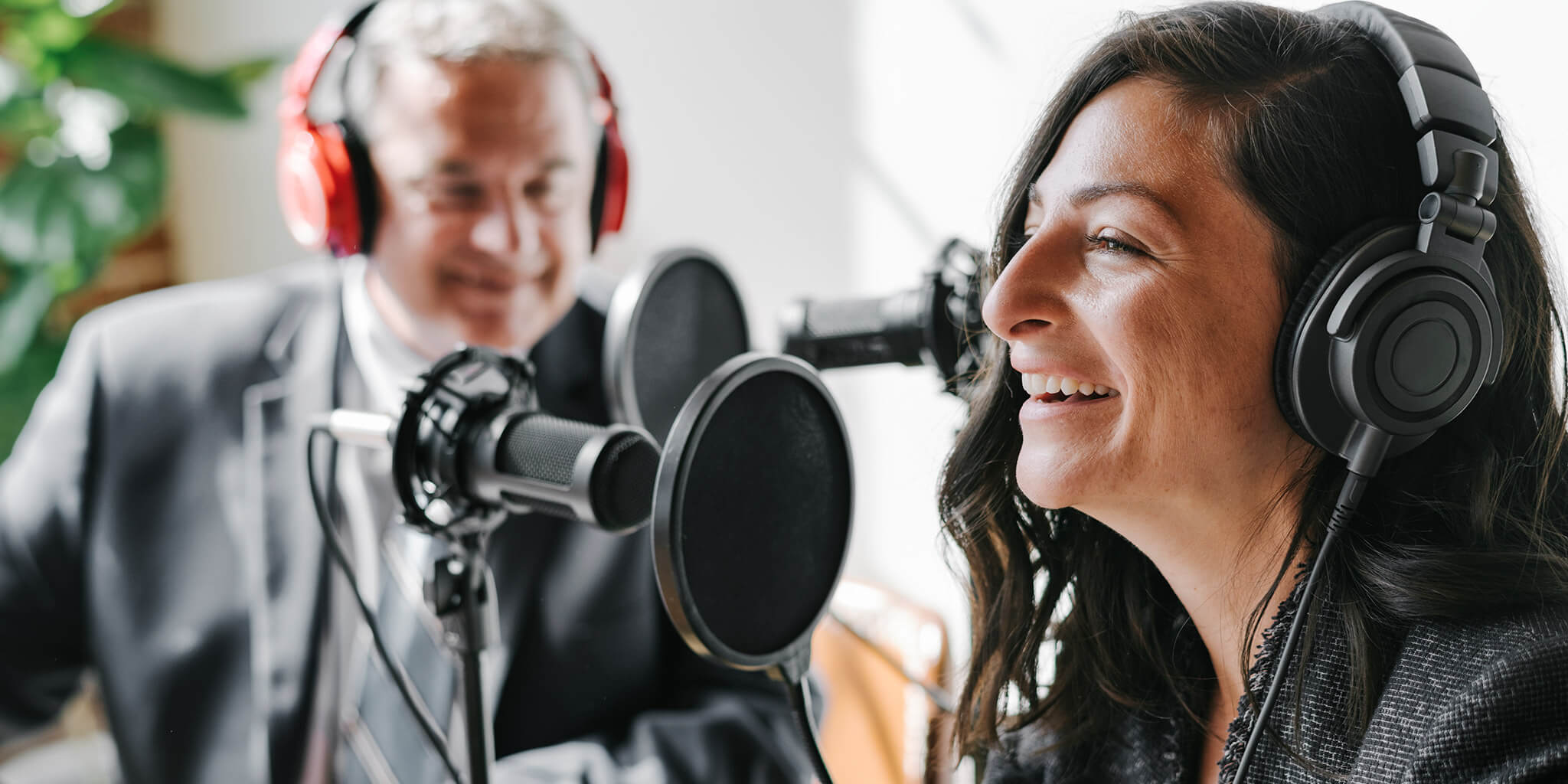How to Start a Small Business Podcast

Contents
As digital content expands, podcasts have become a dynamic way for businesses to reach audiences. Podcasts offer flexibility, allowing listeners to tune in while commuting, exercising, or working. A podcast for your business provides a platform to share insights, engage in meaningful conversations, and position your brand as a thought leader.

Starting a podcast might seem challenging, especially for small business owners with limited time. But with the right tools and strategies, launching a podcast can be manageable and affordable. In this guide, we'll cover everything from initial costs and platform setup to growth strategies, helping you establish a podcast that complements your business goals.
How Much Does It Cost to Create a Podcast?
Costs can vary based on the quality and professionalism you aim to achieve. Below is a breakdown of typical expenses:
- Microphone: For clear audio, consider a quality microphone. Entry-level models like the Audio-Technica ATR2100x USB are available for around $80. Professional-grade mics, such as the Shure SM7B, cost between $400 and $500, offering top-notch sound.
- Headphones: Noise-isolating headphones improve audio editing and recording quality. High-quality options, like Audio-Technica or Sennheiser models, start around $100.
- Recording Software: Many podcasters use free software like Audacity. Alternatively, Adobe Audition is popular among professionals and costs around $20 per month.
- Hosting Platform: While free platforms like Spotify for Podcasters (formerly Anchor.fm) exist, paid hosting providers like Podbean and Buzzsprout cost between $5 and $20 per month, offering better analytics and distribution options.
Estimated total cost: If you opt for basic equipment, you can launch a podcast for under $200. A professional setup might reach $500 or more, but quality equipment pays off by providing a polished, engaging listening experience.
Do You Need a License to Start a Podcast?
No specific license is required to launch a podcast. However, certain considerations are necessary:
- Music Licensing: If you use music, it must be royalty-free or licensed. You can find royalty-free tracks from websites like PremiumBeat or Epidemic Sound. Avoid using popular music unless you purchase proper licensing to avoid copyright issues.
- Copyrighted Material: Ensure all content, such as quotes, audio clips, or guest contributions, are free from copyright issues. Original content is always the safest route for podcasts.
With these precautions, you can avoid potential legal issues and focus on creating original, valuable content that reflects your brand’s expertise.
Do You Get Paid if You Start a Podcast?
Monetizing a podcast is possible, though it typically requires a consistent audience. Common ways to earn revenue from podcasting include:
- Sponsorships: Sponsors pay to feature their product or service on your podcast. As your audience grows, sponsorship opportunities increase. Most sponsors look for niche podcasts with dedicated listeners.
- Listener Donations: Platforms like Patreon allow loyal fans to support you financially. Creating bonus content or offering shout-outs can incentivize support.
- Advertising Networks: Spotify for Podcasters, for instance, connects podcasters with advertisers, allowing you to earn through ad placements. Although smaller podcasts may not qualify initially, growing your audience can attract advertisers.
Monetizing a podcast takes time, but with consistency and strategic partnerships, you can eventually generate income from your episodes.
How to Start a Podcast with No Audience
Launching without an existing audience is challenging but achievable. Here’s a step-by-step guide:
- Define Your Niche: Identify the topics most relevant to your industry and potential audience. Focusing on a specific niche helps you stand out from other podcasts and attracts listeners interested in your expertise.
- Develop High-Quality Content: Plan episodes that provide practical advice, insightful interviews, or case studies. High-value content keeps listeners engaged and encourages word-of-mouth growth.
- Leverage Social Media: Promote episodes on platforms like LinkedIn, Facebook, and Instagram. Share short clips or quotes to attract potential listeners, gradually growing your audience.
- Engage with Your Guests’ Networks: Interviewing industry experts is an excellent way to reach new listeners. When guests share the episode with their followers, your podcast gains credibility and visibility.
With consistent, valuable content and a proactive approach to promotion, you can steadily build a loyal audience.
How to Automate Episode Creation with Existing Content
For business owners short on time, automating podcast episodes is an efficient solution:
- Use Existing Videos: Repurpose video content created by following our on-location video or remote video production guidelines. Upload the video to a platform like Spotify for Podcasters to convert it into a podcast episode effortlessly.
- Read Existing Blog Content: Take blog posts created using our blog guidelines, record yourself reading them aloud, and upload the audio as a new episode. This approach creates valuable, time-saving content for your audience.
Automating episodes with existing content not only saves time and money but also provides diverse, consistent material for listeners, enhancing your podcast’s appeal.
Setting Up a Spotify for Podcasters Account
Spotify for Podcasters is a straightforward, free platform for hosting your podcast. Here’s how to set up your account:
- Sign Up: Go to Spotify for Podcasters and create an account. Use a dedicated email address for easy account management.
- Upload Episodes: Upload an audio file, input your podcast’s name, description, and choose relevant categories to make your podcast easily searchable.
- Set Up Your Branding: Customize the cover art, description, and episode titles to reflect your brand's tone. Spotify for Podcasters also allows you to manage multiple episodes, set release dates, and organize episodes by season.
Spotify for Podcasters is an ideal platform for small business podcasters due to its accessibility and wide reach.
Distributing Your Podcast to Major Platforms
To maximize your reach, submit your podcast to multiple directories:
- Spotify’s RSS Feed: Spotify for Podcasters automatically generates an RSS feed for your podcast. Copy this feed link for distribution.
- Apple Podcasts: Visit Apple Podcasts Connect, sign up, and paste your RSS feed. Once approved, your podcast will be listed on Apple Podcasts.
- Amazon Music: Go to the Amazon Music portal, sign up, and submit your RSS feed. This allows Amazon Music users to find and listen to your episodes.
Expanding to major directories maximizes discoverability and attracts a wider audience across devices and platforms.
Expanding Your Reach Across Podcast Platforms
After listing on Spotify, Apple Podcasts, and Amazon Music, consider expanding to additional platforms:
- Castbox: Known for easy access and user engagement, Castbox attracts podcast listeners globally.
- Goodpods: This platform focuses on community interaction, helping listeners discover shows through recommendations.
- iHeartRadio: With a large user base, iHeartRadio offers valuable exposure, especially in the U.S. market.
- Overcast: Popular among iOS users, Overcast is known for advanced listening features.
- Pocket Casts: This platform’s customizability and strong recommendation engine can attract loyal listeners.
- Radio Public: As an independent platform, Radio Public supports smaller podcasts, making it ideal for niche shows.
Distributing across multiple platforms enhances accessibility, helping you grow your audience and solidify your presence in the podcasting community.
Final Thoughts
Starting a podcast for your small business requires planning, time, and a commitment to quality. However, the benefits are substantial: a well-executed podcast can attract new customers, strengthen your brand, and establish you as a trusted voice in your industry. By following this guide—selecting the right equipment, utilizing existing content, and maximizing distribution—you can create a podcast that captivates listeners and elevates your business.
Looking for more marketing tips? Consider reading "Strategies to Win: A Digital Marketing Playbook for Small Businesses". This book contains a unique blend of personal stories, technical know-how, and practical advice that will ensure you have the tools you need to compete - and win - in today’s digital economy.
You can download the introduction for free in your preferred format below!
"Strategies to Win"
A Digital Marketing Playbook for Small Businesses
Whether you're a first-time entrepreneur or a seasoned business owner, "Strategies to Win" meets you where you are. It’s packed with time-saving techniques and actionable insights tailored for small businesses. You'll learn to build a marketing system that delivers results while saving you time to focus on what truly matters - your family, community, and vision.
When you complete this form we'll send you a link to download the introduction to the book in your preferred format.
This site is protected by reCAPTCHA and the Google Privacy Policy and Terms of Service apply.
.png?width=341&height=80&name=Mazloy%20LLC%20(Vaporwave).png)